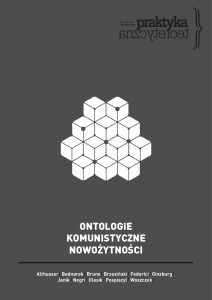Gołębnik przejrzał na oczy. Ludowy spisek w siedemnastowiecznej Italii
The Dovecote Has Opened Its Eyes: Popular Conspiracy in Seventeenth-Century Italy
Author(s): Carlo GinzburgSubject(s): Social Philosophy, Early Modern Philosophy, Philosophy of Religion
Published by: Uniwersytet Adama Mickiewicza
Keywords: Costantino Saccardino; heresy; libertinism; people's history;
Summary/Abstract: The hero of this essay by Calro Ginzburg is XVII-th century clown and distiller Costantino Saccardino, who also was active in the field of medical art. Accused together with his companions of secretly defiling city saint painting with excrements, Saccardino preached that religion – particularly its approach towards hell – was pure fiction and that first people were not created by God but were born out of mud. Ginzburg draws attention to the affinity between Saccardino’s heretical views (marked by the awareness of crisis and the anticipation of political, religious and cultural revolution) and the diagnoses made by Galileo, Bacon, Campanella, Rosicrusarians or even Descartes. At the same time Sccardino’s sensibility is that of a professional comedian – not a great intellectual – and this is what makes his case exceptional. The case of Saccardino, who – as is demontrated by Ginzburg – had a good knowledge of libertine literature while rejecting libertine elitism, shows that in this period the relations between the high culture and the culture of the subordinated classes could include an exchange that went through a detour, mediated in various, sometimes opposing codes.
Journal: Praktyka teoretyczna
- Issue Year: 2016
- Issue No: 19
- Page Range: 217-229
- Page Count: 13
- Language: Polish

